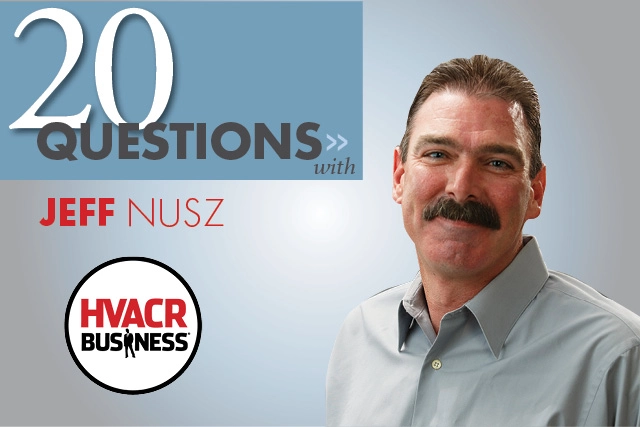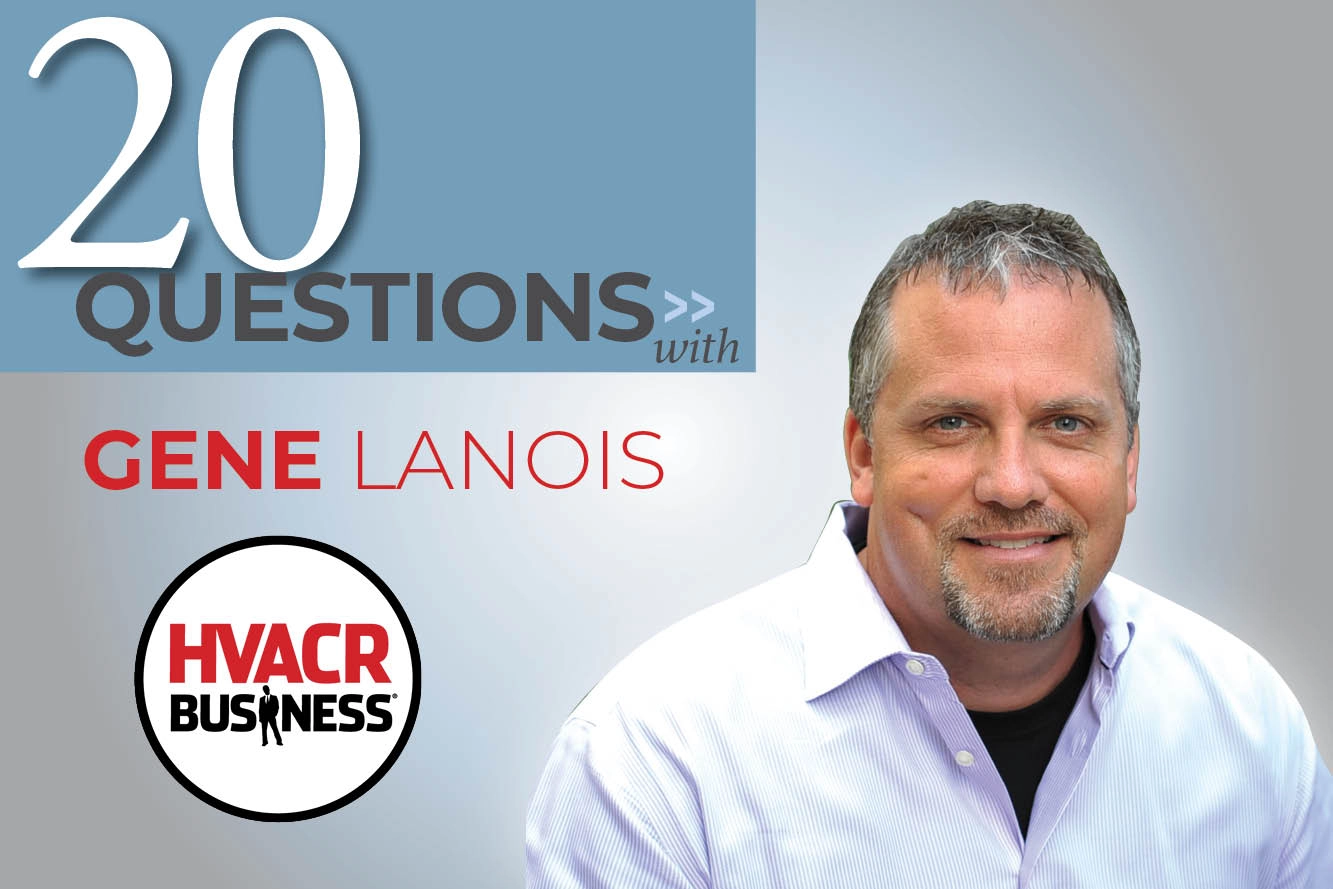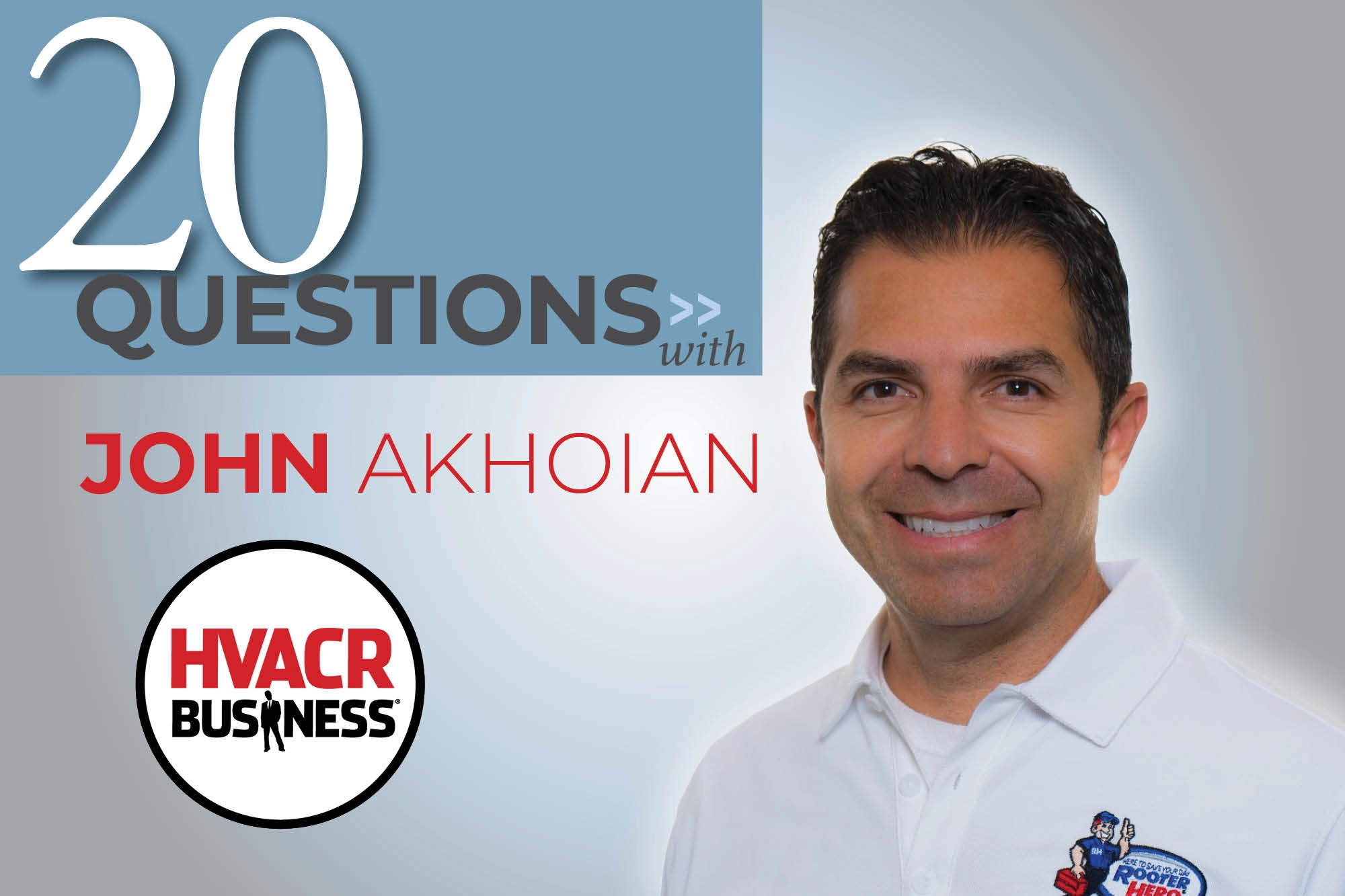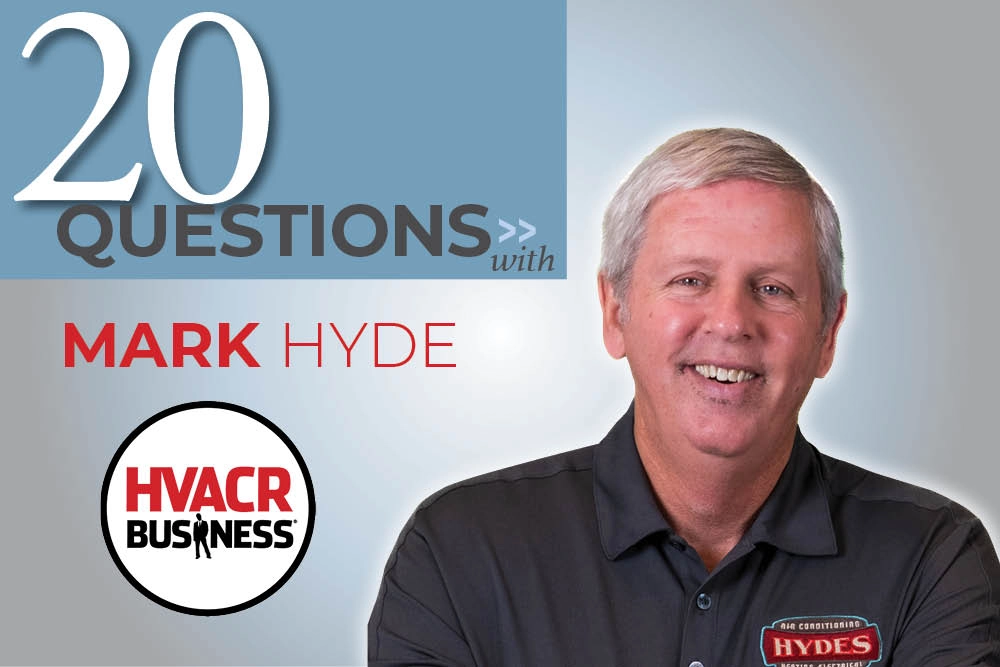We sat down with Jeff Nusz, president of Reitmeier, a mechanical HVACR contractor in Tualatin, Ore. Jeff discussed training the future workforce, learning to run a company and the importance of company culture.
1. How did you get started in this industry?
We moved to Washington, D.C. when I was 18. We were the first house in a new development and across the street was the assistant service manager for Calvert-Jones, one of the largest HVAC government contractors in D.C. I walked over there and I said, “I’d like to learn HVAC.” He said, “Show up on Monday.”
2. Is that where you learned the trade?
I went through the Associated Builders and Contractors’ training program for four years, and got to work with one of the best technician mechanics that I’ve ever experienced. Carried his tools, cleaned his truck, started from the bottom. Then my field supervisor went to another company that did automation and energy management. He brought me over as his assistant manager.
3. How did you go from D.C. to Portland?
I met my wife on a flight to Portland … she was the flight attendant. One day, we’re sitting in our backyard in Virginia and she asks when we’re going to move to Portland. I said, “I don’t know. How about August of ‘97?” I didn’t think she’d hold me to that, but she did.
4. What pushed you?
My mother-in-law from Portland saw an ad in the Oregonian that said five years experience for Reitmeier. I packed everything up, drove cross-country, bought a house and walked into Gerald Reitmeier’s office, who started the company in 1984, and said, “Well, I just bought a house, so I think I need a job.” He said, “Let’s talk.”
5. I take it you got the job?
Two hours later, he made me an offer for more money than I was making in Washington, D.C. At that time, we had about 12 people total in the company. He wanted me to do service management, which I said I didn’t know how to do. But he simply said he’d teach me.
6. How did you progress in the company?
I did that for a period of about eight months and then he came to me and he says, “I want you to sell.” I tell him I don’t know how, but he simply says he’ll teach me. We set a goal for $1 million of new sales. I hit it. I actually hit it. Then, probably a year later, he came to me and says, “My wife has cancer and I want to take care of her. I need you to run the company.”
7. What was that like?
He disappeared for nine months. I spoke to him on the phone on occasion, but he had an old school kind of management style. But I have a different style. I like to enable people, get out of their way. We started growing. I added six technicians, two salespeople and we were more profitable than his company had ever been.
8. What happened when he came back?
When he came back, he was grumpy, of course. He had lost his wife. But when he came back, it was evident that something had to change because everybody was still coming to me. I was like, “No, no, no. You’ve got to go to the old man.” They didn’t want to walk through that door because I had changed the culture, not on purpose, but just naturally.
9. How did he react to the culture shift?
One night we’re sitting in the conference room, Gerald and I, on the whiteboard and he’d show me, “this is balance sheets, this is P&L, this is how much gross margin you need to have to run the business …” We’d be in there until 9 p.m. most nights. Then he says, “You know what? I think we need to do something here and I think you need to own this company.”
10. How did you make that work?
I called my dad, who was a retired process engineer, and told him I had an opportunity in Portland and wanted him to be a part of it. I said, “How about you come to Portland, bring lots of money, and let’s do this?” He says, “Well, let me talk to your mom.” An hour later he called to say they’re putting both houses up on the market and coming out to Portland. We didn’t even have a deal for the company yet.
11. What made you want to own the company?
We negotiated for about a year and a half. I knew the potential was a lot greater than the company was doing. We didn’t know what we didn’t know, but the potential was there and the potential is in the people and that’s my greatest asset is the people and I saw the potential.
12. What was that transition like?
We went at this on a shoestring, 12 people to start, and we went hard at it and we started growing about 30 percent year over year. That’s not really sustainable. Here we are in 2008 and I’m building condos, I’m doing new construction, mid- rise, high-rise. I got 80 people running around. Then it stopped. Everything stopped on a dime. I had some carry out to 2009, but we ended up probably laying off 40 people.
13. How did you recover?
I had to rethink this whole thing. I had the wrong vision being a business owner. I wanted to be the biggest, baddest boy on the block. More trucks, more tools, more clients, more buildings. It was wrong. I hired a business consultant, a marketing firm. I had to get the trust back in my people that I’ve got this … that we’ve got a plan.
14. What’s the company like now?
We operate on the premise of finding that work/life balance is key to me, that everybody can find that balance. I looked at all industries through this soul-searching process and I tried to peel out the best parts of those industries and apply them to mine. We look at this as we want to be a really great company that just so happens to be really good at HVACR.
15. How’s business today?
We’re sold through in special projects through Q2 of next year. I’m up to 500 maintenance contract customers and I just closed a deal with Nike for 85 buildings. Yeah, I’d say business is outstanding.
16. What’s the current challenge in the industry?
A lot of the older generation is out and I had to look and the Millennials were my biggest pool. I had to shift my thoughts and my management style to deal with Millennials because they’re a handful and they’re different.
17. How are you finding technicians?
We’re growing our own and getting them young, getting them in, and training them up. They’re all in mentorship programs and we created our own university, a two-year program. We just got accredited for the State of Oregon to actually get our guys licensed.
18. How do you ensure quality employees?
It’s about a four-interview process to get in our door and we make them do homework as they’re interviewing. If they don’t do that homework, we already know that that’s probably not the one that we want to hire.
19. What’s the key to recruitment?
The main thing that attracts my recruits is the education. That’s key. They really are thirsty to learn. You couple that with hands on and then you couple that with, you’re in a passenger seat with a journeyman, and he’s also your mentor. Then we’re going to meet monthly and tick goals and tell you what you’re doing great at and tell you where we need you to work at and you got to put in the work.
20. Have you solved your labor problem?
It’s just we’re very green as far as labor goes, but they all have a support system from their service manager, to the mentor. Giving them that support system gives them confidence to reach out, knowing that they’re not going to be left on an island. Yeah, we’re working at it just like everybody else.






